Does anyone enjoy visiting the doctor? People are not alone when it comes to worrying about doctor appointments—pets experience as much stress and anxiety when they visit the veterinarian. Although we cannot eliminate every negative emotion associated with unfamiliar environments, people, and care techniques, our Animal Urgent Care of Oconomowoc team strives to ensure our patients experience as positive a visit as possible. To help ensure your four-legged friend receives stress-free care, no matter where they go, implement our top tips for a positive veterinary visit.
1: Acclimate your pet to handling techniques
One of the biggest sources of stress for pets during veterinary visits is being handled in unaccustomed ways, but acclimating your pet to veterinary handling techniques can significantly reduce their anxiety. The following tips will help your furry pal remain calm during their physical exam:
- Start slowly — Spend a few minutes each day gently touching your pet’s sensitive areas, such as their paws, ears, and mouth, and increase the duration as they become more comfortable. Your veterinarian’s examination of these areas will then feel familiar and less threatening.
- Use rewards — Reward your pet with treats and praise to create a positive association with being handled.
- Practice with others — Have other people handle your pet to simulate a veterinary-like environment and reduce fear of strangers.
2: Turn the carrier into a happy place
For many pets, the veterinary hospital journey starts with the dreaded carrier. Make this experience less stressful and turn the carrier into a happy place by:
- Making the carrier a permanent fixture — Rather than bringing out the carrier only for veterinary visits, leave it out all the time so your pet becomes accustomed to it.
- Feeding your pet inside the carrier — Occasionally feed your pet in their carrier to build a positive association. Leave their favorite toys and treats inside as unexpected rewards.
- Using pheromone sprays — These sprays can reduce stress in confined spaces, making the carrier more inviting.
3: Carry out ongoing socialization
Early and ongoing socialization is crucial for reducing fear and anxiety in pets. With regular, positive exposure to different environments, people, and other animals, your pet will become more adaptable and less stressed in new situations, including veterinary visits. Socialize your pet with:
- Varied exposure — Introduce your pet to different environments, sounds, and people from a young age to build their confidence.
- Positive reinforcement — Rewarding calm behavior in new environments will encourage a positive outlook.
4: Drop by for happy visits
Not every trip to your veterinarian should involve a medical procedure. Drop by your primary care veterinary hospital for happy visits, so your pet can get used to the environment with no negative experiences. Let your four-legged friend meet the staff, explore the waiting area, and receive treats. Keep these visits short and enjoyable, and reward your furry pal with their favorite treats to form a positive association.
5: Bring your pet hungry
A hungry pet is more likely to be food-motivated and responsive to treats, which can help distract and calm them during veterinary examinations or procedures. Ensure your pet comes hungry by:
- Skipping a meal — Do not feed your pet before the appointment but keep them hydrated.
- Bringing high-value treats — Bring your pet’s favorite treats to reward calm behavior and cooperation.
6: Stock up on calming products
Various calming products, such as pheromone sprays, calming collars, compression wraps, and supplements, can help reduce your pet’s anxiety. Synthetic pheromone sprays mimic species-specific calming pheromones and spraying the carrier or their blanket can reduce stress. Calming supplements that contain ingredients like L-theanine and tryptophan can also help reduce anxiety.
7: Ask your veterinarian for help
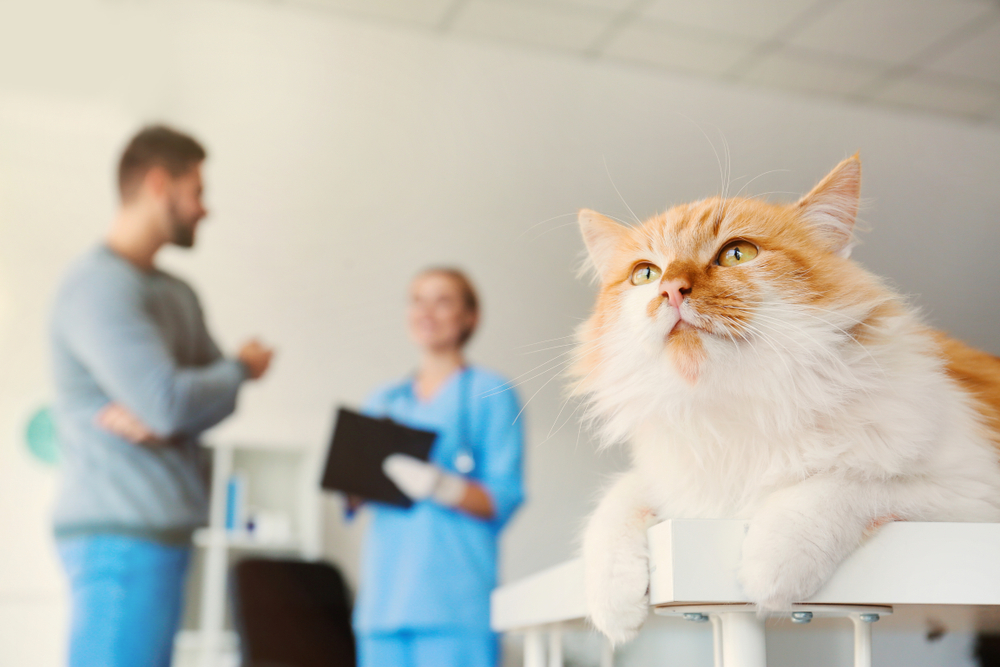
If your pet is extremely anxious or fearful during veterinary visits, don’t hesitate to ask your veterinarian for help. They can provide additional strategies like behavior modification techniques and may prescribe medication to help manage your pet’s stress.
While urgent care situations may not always allow for the deployment of the full arsenal of stress-free techniques, our Animal Urgent Care of Oconomowoc team always strives to ensure your pet’s experience is positive. Give us a call if your pet needs after hours veterinary care.

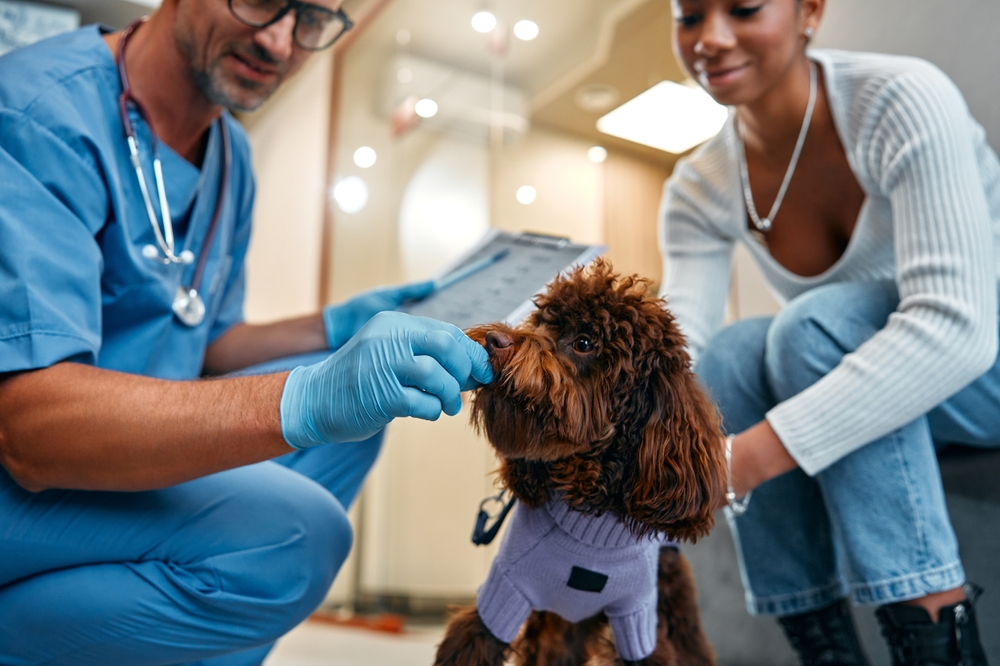
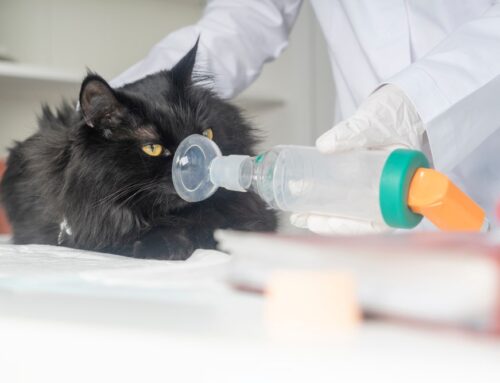
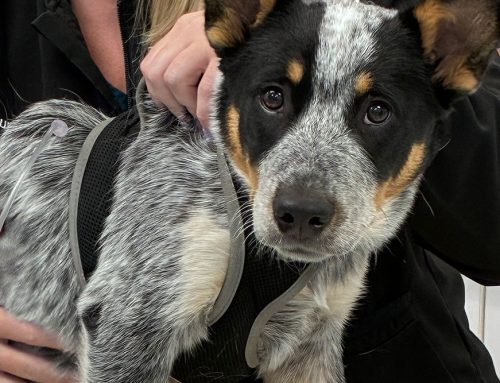
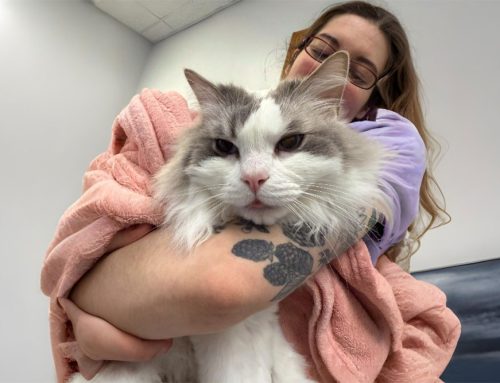
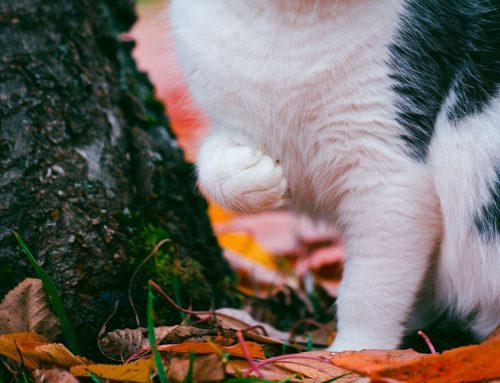

Leave A Comment